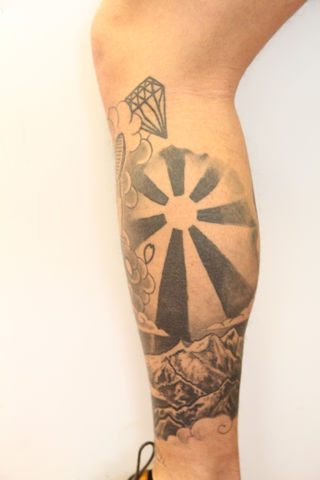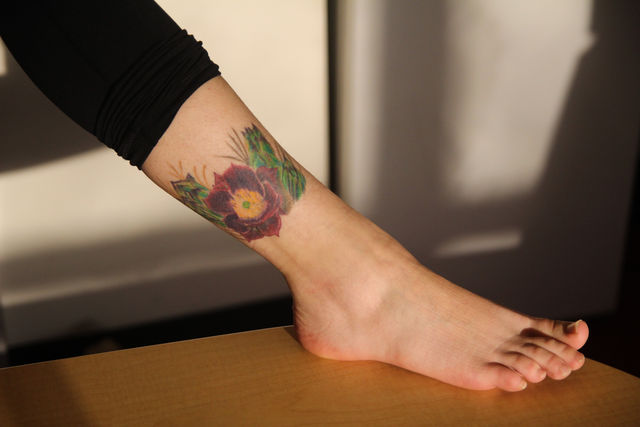The climate is shifting in favor of tattoos. Once a hobby seemingly limited to sailors, jailbird uncles and other corners of society traditionally labeled “untouchable” by the ink-free classes, tattoos — or “body art,” depending on who and where you ask — are now frequently sported by the likes of celebrities, business people and camera-friendly social media models. Tattoos might appear to be the new “thing,” they have much further to go in terms of public perception before they’ll be ubiquitously acceptable.

For example, several undergraduate research theses have shown that public perception still recurrently devalues those with tattoos. A study done by Harris Interactive in 2012 found that a little less than half of the random sampling thought people with tattoos were less attractive; nearly a quarter thought people with tattoos were also less intelligent, healthy and spiritual. Another study found that when evaluating women with tattoos, college undergraduates presumed the women would be more promiscuous and more willing to consume higher amounts of alcohol. These studies are far from concrete — other studies done more recently show that tattoos might have little to no effect on public perception. However, the concept lingers that people with tattoos are more readily judged than those who haven’t gotten ink.
This mindset may be in part due to many HR-linked restrictions of tattoo display. People in the workforce bearing visible tattoos have likely been asked to cover their tattoos while on the job. This, one could presume, has its roots in the establishment’s wish to avoid offending or otherwise distracting guests/customers. What is it about tattoos, barring overtly obscene or suggestive drawings, that can and does rile the ink-free classes?
In Utah, one might assume that body ink is more readily devalued than in, say, Portland, Ore. While filming a documentary last year on the topic of tattoos and public perception, my crew and I interviewed a heavily tattooed and beautifully eloquent man on the reaction of his LDS family post-ink. To him, it was counter-intuitive that the body, to be sacred, must remain unmarked when LDS temples across the world sport their own array of beautiful carvings, decorations and artwork — both inside and out. If those temples, like the body, are temples of God, mightn’t they, too, remain bare, unscathed and undecorated?

This argument has holes, certainly, but it highlights a point not made nearly often enough. Beauty can come in any form, whether perceived by the masses as “good” or not. One hundred years ago in the United States, tattoos were strictly the currency of hooligans and military men. Five hundred years prior, they were almost singularly the marks of tribal people dedicated to marking and preserving culture and solidarity.
Tattoos today face fewer cultural stigmas than they did in the past; there’s no good argument to be made against this notion. Public perception, however, might be less than “totally on board.” As the aestheticization of tattoos grows in size and fervor, so too will their acceptability. Until having tattoos is regarded as normal and regular as not having tattoos, we might be a little more socially aware of the way we perceive women and men who happen to have some ink. Over-generalizations can be dangerous, especially when they inflect attitudes of assumed promiscuity or intelligence. Ask a person about her or his tattoos. I guarantee you’ll learn something about that person’s personality or history, and you might just get an idea or two for a tattoo of your own.






















